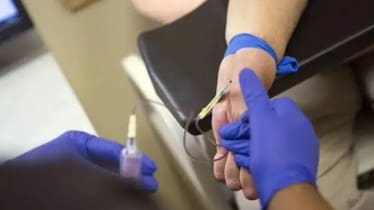Why is jaundice common in summer and monsoon? Dr Rakesh Gupta, senior consultant, internal medicine, Indraprastha Apollo Hospitals, says, “During summer, high temperatures and increased sweating can lead to dehydration, which can contribute to development of jaundice. Dehydration causes bile to become concentrated, increasing the risk of gallstone formation and bile duct obstruction. Additionally, the increased exposure to sunlight during summer can trigger certain types of jaundice, such as Gilbert’s syndrome, a condition characterised by an inherited enzyme deficiency that impairs bilirubin metabolism. Higher temperatures can exacerbate certain liver conditions, leading to a buildup of bilirubin in the bloodstream, resulting in jaundice. In the monsoon, waterborne diseases like hepatitis A, hepatitis E, and leptospirosis are more prevalent due to contaminated water sources. These infections can cause inflammation and damage to the liver, leading to impaired bilirubin excretion and subsequent jaundice. Additionally, the humid and damp conditions during the monsoon can promote the growth of certain fungi and bacteria, increasing the risk of infections that may adversely affect liver function.
How can one protect from jaundice in summer months?
Practising good hygiene habits, such as frequent handwashing with soap and water, is crucial during the summer months when outdoor activities and food preparation may increase the risk of transmission. Proper food handling and cooking techniques, including thorough washing of fruits and vegetables, can also help prevent hepatitis A infection.
To reduce the risk of jaundice during the summer months, it is essential to stay hydrated by drinking plenty of fluids, especially water. Avoiding excessive sun exposure and using appropriate sun protection measures, such as wearing protective clothing and applying sunscreen, can help prevent certain types of jaundice triggered by sunlight.
Are vaccines advised for temporary protection, or are dietary precautions better?
Vaccines are highly recommended for long-term protection against hepatitis A, a leading cause of jaundice. The hepatitis A vaccine provides active immunity that can last for decades, making it an effective preventive measure, especially for individuals planning to travel to areas with poor sanitation or high hepatitis A prevalence. Additionally, vaccination is crucial for individuals with underlying liver conditions or those at high risk of contracting the virus. The vaccine is generally safe and well-tolerated, with minimal side effects. While vaccines offer robust and long-lasting protection against hepatitis A, dietary precautions are also essential, particularly for temporary or situational prevention of jaundice. Maintaining a balanced and nutritious diet, rich in antioxidants and liver-supporting nutrients like vitamin C, vitamin E, and B-complex vitamins, can help protect liver health and potentially reduce the risk of jaundice. Avoiding excessive alcohol consumption, which can strain the liver, is also recommended.
Consuming certain foods like papaya and sugarcane juice are common in jaundice. Are these myths or do they have some scientific backing?
The belief that papaya can help in the treatment of jaundice has some scientific backing. Papaya is rich in antioxidants, such as vitamin C, carotenoids, and flavonoids, which can help protect the liver from oxidative stress and potential damage. Additionally, papaya contains an enzyme called papain, which has been shown to have anti inflammatory properties and may help in the breakdown of bilirubin, the compound responsible for the yellowing of the skin and eyes in jaundice. However, it is crucial to note that while papaya may provide supportive benefits, it should not be considered a sole treatment for jaundice, as the underlying cause of the condition needs to be addressed.
The consumption of sugarcane juice as a remedy for jaundice is more controversial from a scientific perspective. Proponents of this practice believe that sugarcane juice contains compounds that can help stimulate bile production and aid in the excretion of bilirubin. However, there is limited scientific evidence to support these claims. While sugarcane juice is a natural source of fluids and can help maintain hydration, which is essential for proper liver function, its direct impact on jaundice remains inconclusive. It is important to consult with healthcare professionals before relying solely on sugarcane juice as a treatment for jaundice, as the condition may require medical intervention and monitoring.
